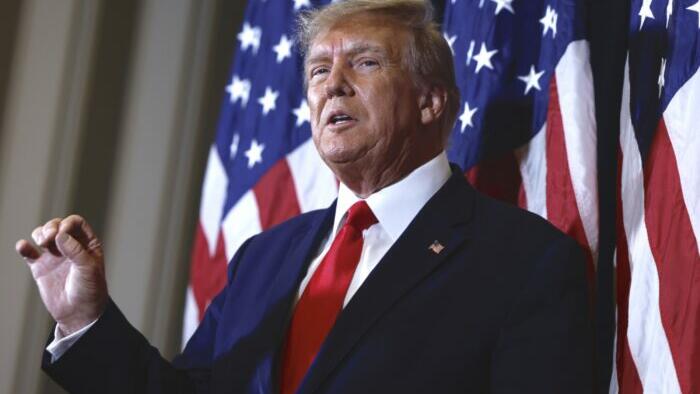In the lead-up to the 2024 election, Democrats have intensified their efforts to portray Donald Trump as a significant threat to democracy, drawing stark comparisons between him and notorious dictators like Hitler, Stalin, and Mussolini. According to a report by Bloomberg, mentions of the “Trump-Hitler” narrative surged, surpassing 5,500 instances in just one week. This relentless media campaign has raised questions about public trust in journalism, as many individuals perceive a systematic attempt to vilify Trump and distort his actions. Critics, particularly from Trump’s camp, contend that such comparisons are exaggerated and play into a broader narrative meant to discredit his political presence and potential candidacy.
In the face of these claims, a social media user known as “Insurrection Barbie” presented a twelve-point rebuttal questioning the characterization of Trump as a dictator. The assertion here is not merely to defend Trump but to challenge the narrative by highlighting alleged overreach and abuses of power by the Biden-Harris administration. This consists of various actions taken that, according to this perspective, demonstrate a lack of respect for established legal norms and democratic processes, drawing attention to executive actions that some argue have undermined the legislative power of Congress.
Among the points outlined, the Biden administration’s extension of eviction moratoriums is cited as an instance of government overreach during the COVID pandemic. Critics argue that such measures infringe upon property rights by using emergency powers in a manner that exceeds the authority granted by law. Additionally, mandates related to vaccinations and student loan cancellations are scrutinized, with opposition citing that such actions were overturned by courts as unconstitutional and undermined legislative processes, emphasizing a pattern of circumventing checks and balances that define a democratic government.
Further assertions underscore perceived threats to free speech, with references to the Biden administration’s attempted regulation of misinformation and coercive measures purportedly targeting social media companies to stifle dissenting voices. The narrative builds on the idea that these actions reflect a disregard for the First Amendment rights of American citizens, framing the administration as dictatorial in its approach to information control and public discourse. This characterization seeks to paint a picture of a government that engages in censorship and manipulation, as opposed to fostering an open and democratic dialogue.
Other points of contention include allegations of failure to enforce immigration laws and secure national borders, coupled with claims that the administration has harbored criminals. Each of these claims seeks to illustrate a perceived chaos in governance and the failure to uphold law and order, suggesting that such inaction could be categorized as dictatorial in spirit. Furthermore, actions against parents protesting at school board meetings are viewed through the lens of governmental overreach that stifles community participation in local governance, again emphasizing the perceived failure to respect constitutional rights.
Ultimately, the compilation of these arguments forms a larger narrative that challenges the characterization of Trump as a dictator by suggesting that the Biden administration has enacted controversial and arguably overreaching policies. This exchange highlights a deeply polarized political environment where debates over authority, governance, and personal freedoms collide. As these narratives evolve leading into the 2024 election, the framing of political figures and their actions will play a crucial role in shaping voter perceptions and the broader discourse on democracy in America.

